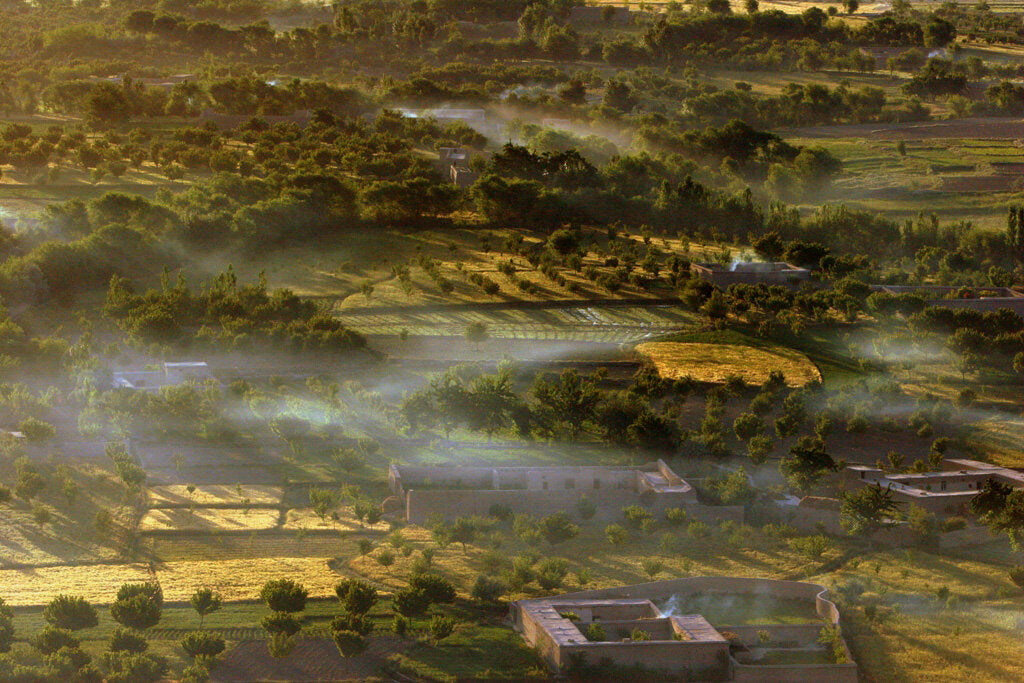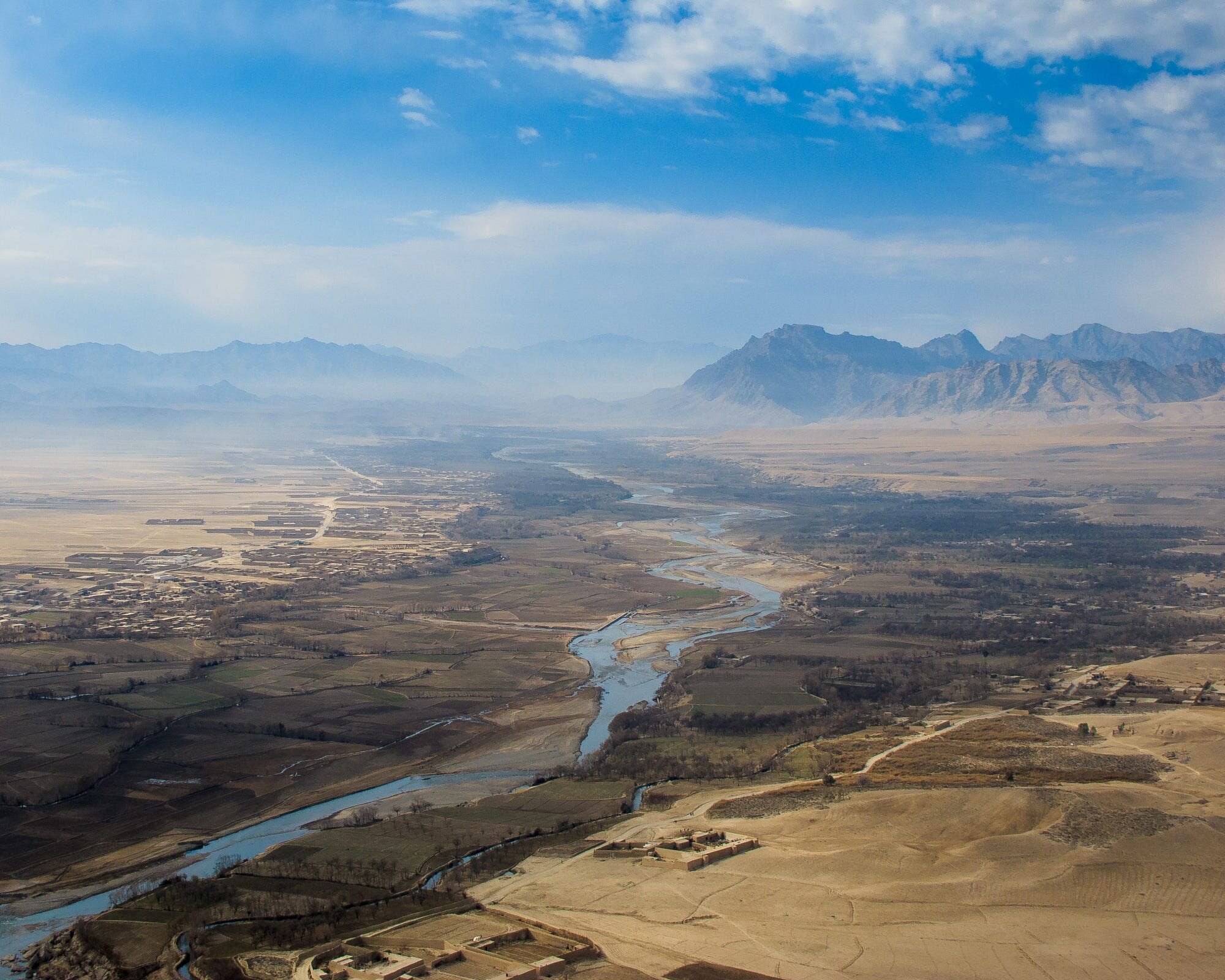Article: The Pull of Hunger, Pt. I

The Pull of Hunger, Pt. I
Tarin Kowt City, Tarin Kot District, Uruzgan Province, 26 December 2012—
The people in his village called him Toor Jan—black sweetie in Pashtun, a nickname Toor Jan resented—because he was darker than the rest of them. He’d been Toor Jan for so long that no one could remember what his long dead father had named him when he was born.
Toor Jan didn’t know his age, how to read or write, why God—the most gracious, the most merciful—had created chaos, or war, or poverty. Toor Jan was a simple country person, like everyone else in his village. But Toor Jan did know one truth: last night his wife, Shaheen, had given birth to his first son and the family—Toor Jan, Shaheen, the baby boy, his disabled brother Abdul Hakim, Shaheen’s sister, Nagma—would starve if Toor Jan couldn’t get to the city and meet with the man he called The Good American.
Last night, Toor Jan returned from the mosque to his compound and found Shaheen and Nagma in the yard where their skinny lamb bleated at the invasion of his space. For hours, Shaheen squatted and screamed. A vaporous perspiration streamed through her green dress. Toor Jan and Abdul Hakim leaned against each other and silently watched.
Toor Jan had seen this type of pain before: in animals at the moment of slaughter, in the eyes of a girl he’d seen sucked under a careening police vehicle and spit out of the rear wheels, or in the face of his cousin Aziz, where they’d played as boys, sucked down the Teri river and lost forever. He’d heard from The Good American, his uncle in the Taliban, from other villagers that there were places in India, or Germany, or America where women could give birth without pain. Toor Jan wondered why God chose some people to be born in places where there was no pain and others in places that bore it all. God’s ways are as mysterious are they are merciful.
Shaheen’s sharp cries rose in pitch until, finally, in the bone white gleam of the midnight moon, Nagma pulled the baby from her sister and lifted it into the air. Shaheen collapsed onto the ground, moaning, her exhausted body leaning against the reclining wooly lamb.
“La’illa Allah, Muhammad rasul Allah,” Nagma whispered. She wrapped the bloody baby in a blanket, cut the cord, and turned to the two brothers as they rushed over.
“Alhamdulillah,” Toor Jan cried. Abdul Hakim danced in the courtyard with the family’s AK-47. He smiled innocently before firing the rifle wildly over their heads. The tracers skipped through the air like angry bits of broken stars. Toor Jan snatched the rifle away and moved to slap him but couldn’t. Almost 17, Abdul Hakim was a full man but he only had the intelligence of a young child.
Nagma hugged the wrapped baby like a precious but fragile jewel. “His name?” She asked Toor Jan.
“Ibrahim,” Toor Jan said. A strong Muslim name. “And none of us will ever forget it.”
Now, Toor Jan used the light of the crowning dawn to search the floor and its heavily stuffed red pillows for his black turban. He found it, wrapped his head delicately, and drew a crackling fire out of the wood stove in the corner of the room. Behind him stirred a slow crawling mass of heaped blankets. “Toor Janna?”
He turned to Shaheen. The girl and baby were invisible in their blankets except for the deep pool of Shaheen’s black eyes. “What is it?”
“The baby.”
Toor Jan walked over as she struggled to remove the baby from the tangle of blankets. Toor Jan reached down and impatiently picked them away. The boy gurgled and his unfocused eyes tracked over Toor Jan’s huge black beard and deep set eyes. Ibrahim’s face, like a rabbit’s, was split from nose to lips, the flesh neatly separated, two smooth flaps hanging an inch from each other.
Toor Jan looked at Shaheen. Her face was thin, her own skin like glass with a net of blue veins pressing through at her forehead, face, neck. Black eyes and long eyelashes dominated the wasting of her pale face. Her breasts were empty. She hadn’t eaten much in a week. Nor had Abdul Hakim or Nagma. Toor Jan felt the pull of hunger from every living thing in his house.
“I will fix this,” he said to the room. After Toor Jan showed The Good American new pictures he had of Taliban Commanders on his cellphone, Toor Jan would be paid. Everyone would eat again and their worries would leave them, for at least a short time. Maybe The Good American could fix Ibrahim’s face too. Their doctors did God’s own miracles. Toor Jan treaded to the other end of the room and stomped on a heap of blankets. “Abdul Hakim.”
A groan came from the pile.
“Make sure nothing happens to this house.”
Abdul Hakim groaned again.
“Do you hear me, idiot?”
“I hear you, brother.”
Toor Jan hid his cellphone in his sandal and strode into the compound’s yard. He felt his pocket for prayer beads and asked God to protect him from the Evil Eye, the bombs, the police, the army, the Americans and Talibs. Toor Jan kicked their wooly lamb—too skinny for eating—and swung onto his Chinese motorcycle. The blue nazars on the fenders tinkled. He was glad to have those too.
“Toor Janna.” Nagma appeared before him, shivering even in her blankets. “The baby has an infection in both eyes too. We need medicine.”
He nodded to the skinny girl and left.
From the beginning the cold almost killed Toor Jan. Coming down the Pinowa Valley, a dust plain opened into the floor of the Tarin Kowt Bowl where the American airfield stretched across in a long line. He traveled for twenty brutal minutes along the river, where the compounds were not more than three feet from the banks, on a tract the people called Taliban Highway.
The road twined narrowly between the shallow dirty water and the empty poppy fields. He sped past the rusted Russian tank but slowed at a turn where three men stood in the road. They had materialized so suddenly Toor Jan couldn’t do anything other than stop.
The men wore black turbans and big beards. A dog, attracted to their fire, circled their makeshift checkpoint. All three had weapons.
“Turn that motorcycle off,” one of the men said. He held an ICOM radio and an AK-47. Toor Jan assumed he was the leader. The two other men had Enfield rifles and bandoliers of ammunition strapped across their chests.
Toor Jan balanced the hot motorcycle between his thighs. “My friends, I don’t want any trouble.”
“What kind of trouble are you talking about?” Asked the leader. He scratched his forehead with the antenna of the ICOM, pushing it up under his wet turban. The man stunk of sweat, grease, and gun oil. “We are not robbers. We are mujahedeen.” The leader slung his rifle and moved over to Toor Jan’s right side. “Lift your shirt. Where’s your cellphone?”
“I don’t have one,” he said and planted his right foot deeper into the dust.
“Hold the motorcycle up, Hafiz,” the leader ordered as he jammed his hands deep into Toor Jan’s pockets.
Toor Jan’s throat clenched. He pressed his foot down on the cellphone in his sandal. These Talibs could beat him, burn his hands in the fire, even let their dog tear off chunks of his flesh. But they’d never get this cellphone. The pictures were worth more than Toor Jan’s own life.
Finding nothing, the leader clipped the ICOM to his black vest and lifted his rifle. Toor Jan followed the muzzle with his eyes. “This is Mullah Sher Muhammad’s road.”
“That’s my uncle,” Toor Jan said. A cool jet of relief shot straight through him. “You work for him! This is good!”
“Mullah Sher Muhammad is your uncle?”
“Yes. I’m Toor Jan, son of Haji Izatullah, from Safad Khare.” Toor Jan rewrapped his sweating hands on the slick chrome handlebars. The three men slung their rifles and huddled together near their fire. The skinny yellow dog sniffed at their feet. After a moment the leader walked toward Toor Jan. He was like a djinn, the demons God had made from smokeless fire, with his flowing clothes and black eyes burning behind his beard. The dog followed.
“Mullah Sher Muhammad?”
“Yes.”
The leader spoke into his ICOM, “Commander Zubair, we got a guy here. He says he knows The Big One.”
The radio warmed to life and through the white noise Zubair’s voice cracked, “What’s his name?”
Toor Jan repeated his name, his father’s name.
Zubair responded, “Does he have metal attached to his arm?”
Toor Jan rolled his sleeve and showed the leader the edge of the splint and screws from when he had been wounded by an RPG several months ago, the same wound that brought him to The Good American.
“Yes, Commander Zubair.”
“Let that one go, now. Don’t bother him again.”
The leader leered at Toor Jan. “You heard what he said.”
Down the dirt hill faster and faster, Toor Jan raised his legs and spread them wide as the elation streamed off of his back. The bike quickly became unbalanced on the chewed and broken road and Toor Jan, with a sprint of his heart, jammed his feet onto the pegs. Out of sight, he stopped, took his cellphone from his sandal, and kissed the Micro SD card, whispering, “alhamdulillah,” before slipping the tiny card into his turban.
The sun had come up from behind the mountains and warmed him as he rode toward the Teri Bridge at the bottom of the valley. Already there were vehicles piled up on the bridge, stopped and searched by police in their powder blue uniforms before they entered the city. Toor Jan only had half an hour before his meeting with The Good American. If God truly loved poor people, then Toor Jan would cross over like a ghost. If not, Toor Jan might as well return to the Talibs and admit he was a spy.
It was better to lose your family all at once rather than slowly.
Written By Matt Cricchio
9/15/21








